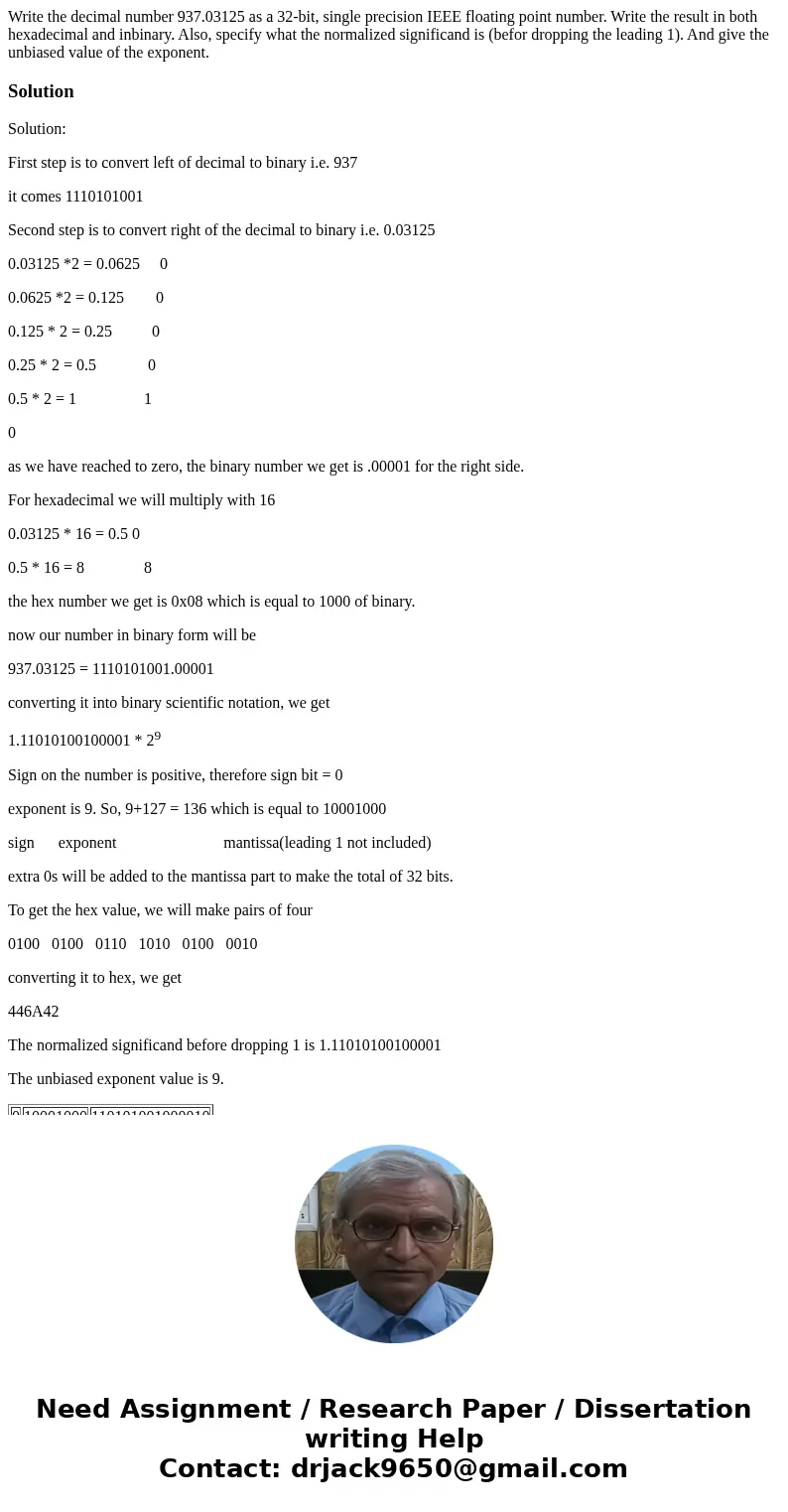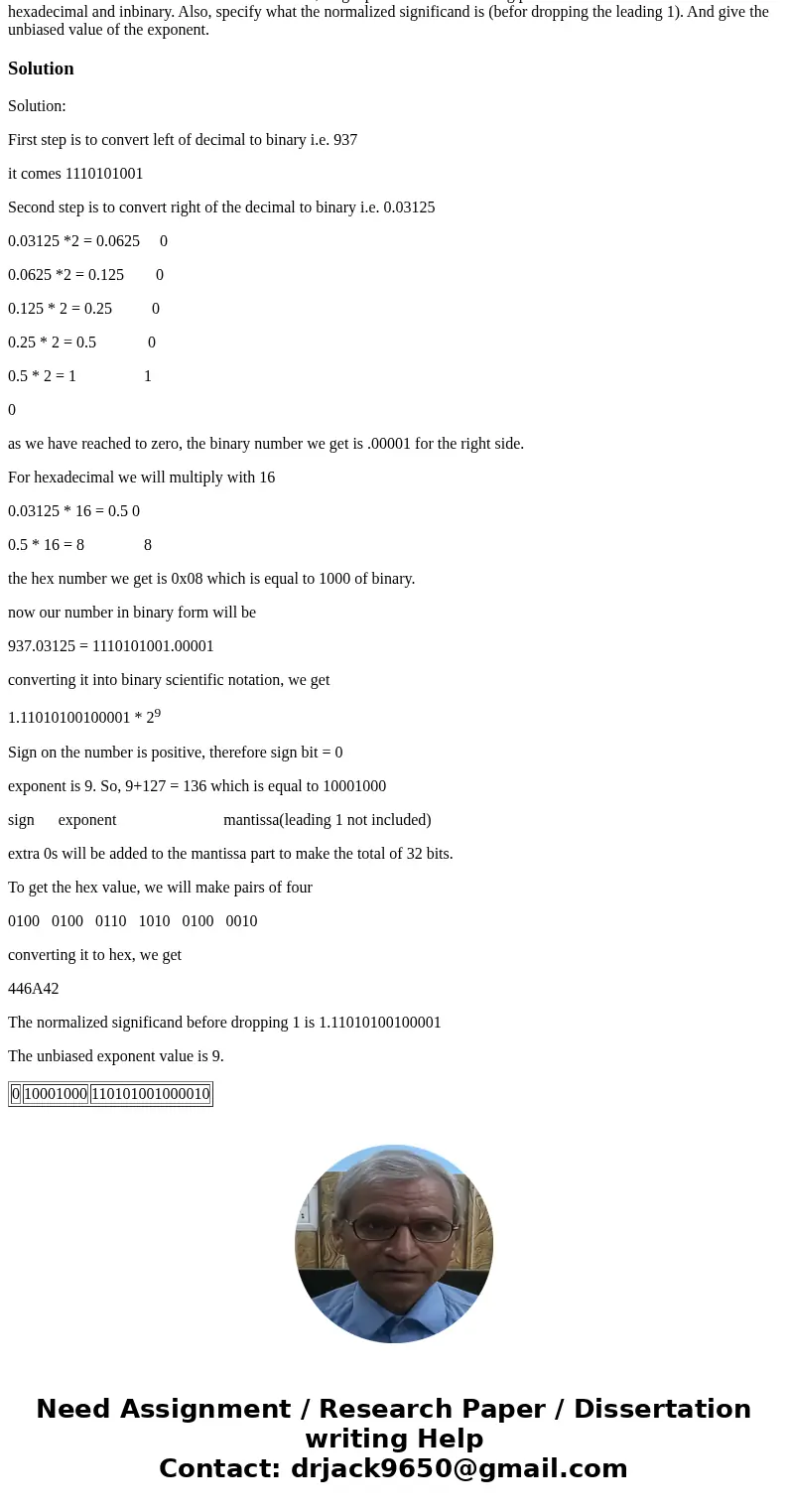Write the decimal number 93703125 as a 32bit single precisio
Write the decimal number 937.03125 as a 32-bit, single precision IEEE floating point number. Write the result in both hexadecimal and inbinary. Also, specify what the normalized significand is (befor dropping the leading 1). And give the unbiased value of the exponent.
Solution
Solution:
First step is to convert left of decimal to binary i.e. 937
it comes 1110101001
Second step is to convert right of the decimal to binary i.e. 0.03125
0.03125 *2 = 0.0625 0
0.0625 *2 = 0.125 0
0.125 * 2 = 0.25 0
0.25 * 2 = 0.5 0
0.5 * 2 = 1 1
0
as we have reached to zero, the binary number we get is .00001 for the right side.
For hexadecimal we will multiply with 16
0.03125 * 16 = 0.5 0
0.5 * 16 = 8 8
the hex number we get is 0x08 which is equal to 1000 of binary.
now our number in binary form will be
937.03125 = 1110101001.00001
converting it into binary scientific notation, we get
1.11010100100001 * 29
Sign on the number is positive, therefore sign bit = 0
exponent is 9. So, 9+127 = 136 which is equal to 10001000
sign exponent mantissa(leading 1 not included)
extra 0s will be added to the mantissa part to make the total of 32 bits.
To get the hex value, we will make pairs of four
0100 0100 0110 1010 0100 0010
converting it to hex, we get
446A42
The normalized significand before dropping 1 is 1.11010100100001
The unbiased exponent value is 9.
| 0 | 10001000 | 110101001000010 |


 Homework Sourse
Homework Sourse